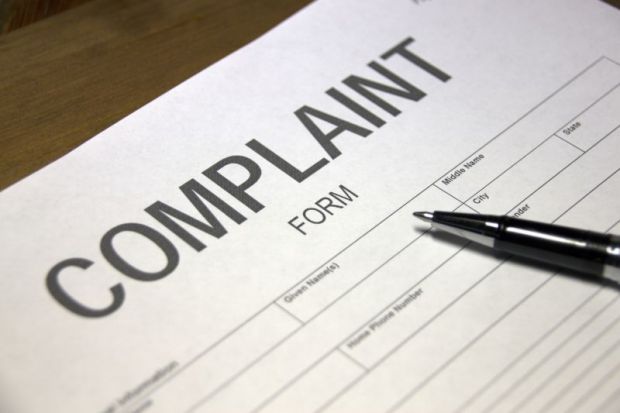A University of Cambridge college has been named and shamed by the sector ombudsman for refusing its order to pay a student compensation.
The Office of the Independent Adjudicator for Higher Education says that the case – involving Clare College, Cambridge – represents the first time that an institution has refused to comply with one of its recommendations.
It has previously reported five other providers for failing to comply with its recommendations, but these were the results of delays or errors, not outright non-compliance, the OIA says.
At the heart of the row is a Clare student who complained to the OIA about their suspension from the college. The OIA ruled that the complaint was justified because there was insufficient information to support the decision, and recommended that the student should be reinstated and paid £3,000 “for distress and inconvenience”.
Clare reinstated the student, but has failed to pay the compensation. At the end of last year “the college told us that it did not intend to comply with the remaining recommendation”, the OIA’s annual report says.
Reporting non-compliance in the annual report, and to the OIA’s board, are the ultimate sanctions available to the ombudsman in cases of non-compliance.
The OIA says that it “expect[s] providers to comply with the requirements of our scheme”, since it was important “for the individual student involved, for students’ confidence in bringing their complaints to us, for improving practice to the benefit of other students, and for us to run our scheme effectively”.
“We hope that even at this late stage Clare College will reconsider its position and pay the student the compensation we recommended in recognition of the distress and inconvenience they have suffered,” the report says.
Clare College has been contacted for comment.
As reported previously by Times Higher Education, complaints to the OIA reached a record high of 2,604 in 2020, up 10 per cent year-on-year, and more than 70 per cent since 2016.
About 300 complaints were directly related to the coronavirus pandemic, mostly relating to the end of the 2019-20 academic year, since the need for students to exhaust internal complaint processes before going to the OIA introduces a time lag.
But the annual report outlines a significant shift in the topic of students’ complaints compared with previous years, with far fewer about academic appeals – most likely relating to the introduction of “no detriment” assessment policies during the pandemic – and many more about service issues relating to course delivery, teaching hours and supervision. These represented 43 per cent of complaints in 2020, compared with 29 per cent in 2019.
About one in five coronavirus-related complaints referenced the cumulative impact of disruption following earlier industrial action over pay and pensions at the start of 2020.
The annual report says that a “gradual” increase in complaints about sexual misconduct continued in 2020, although the numbers involved were still small.
They included one case in which a student complained that their dissertation supervisor was sexually harassing them and offering higher grades in exchange for sex. The OIA says that, while the university involved did allocate the student a new supervisor, it had not treated the complaint urgently enough, and told the provider to pay the student £5,000 compensation.
Overall, the OIA made recommendations or settled cases with financial remedies that totalled £742,132, similar to last year. The highest single amount of compensation was just over £30,500, and 50 students received amounts of more than £5,000.
Separately, the ombudsman also recommended that former students of GSM London, which went into administration in 2019, should receive compensation totalling £264,142. The OIA received 165 complaints from former students but the amount of money they will actually receive is likely to be considerably less.
Felicity Mitchell, the independent adjudicator, said that 2020 had been “an exceptionally challenging year for everyone who studies or works in higher education”.
Register to continue
Why register?
- Registration is free and only takes a moment
- Once registered, you can read 3 articles a month
- Sign up for our newsletter
Subscribe
Or subscribe for unlimited access to:
- Unlimited access to news, views, insights & reviews
- Digital editions
- Digital access to THE’s university and college rankings analysis
Already registered or a current subscriber? Login








